COVID-19: Lessons for the future of Anaesthesia and Critical Care Speakers Day 3
Thursday 17 June 2021
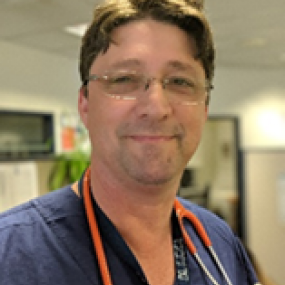
Professor David Story is foundation chair of Anaesthesia and Deputy Director of the Centre for Integrated Critical Care at the University of Melbourne. He is a part-time staff anaesthetist at the Austin Hospital in Melbourne where his clinical work is predominantly perioperative care for sicker adults including for liver transplantation.
His research includes perioperative outcomes and models of care; applied physiology including acid-base disorders; environmental aspects of anaesthesia; and surveys. He is also a consumer investigator in diabetes care. He studied medicine at Monash University and also graduated with a bachelor of medical sciences on exercise at high altitude. David received his FANZCA in 1997. His doctorate from the University of Melbourne (2004) is on simplifying the Stewart approach to acid-base disorders.
David chairs the ANZCA Safety and Quality Committee and is deputy chair of the ANZCA Research Committee. He has been a member of the ANZCA Clinical Trials Network since its inception in 2003 and is a member of the ASM and Events Planning Committee. He was an examiner in the ANZCA primary exam for 12 years. His government roles have included being on the council of the National Health and Medical Research Committee (NHMRC) and the Victorian Perioperative Consultative Council.
David was elected to ANZCA Council in May 2020.
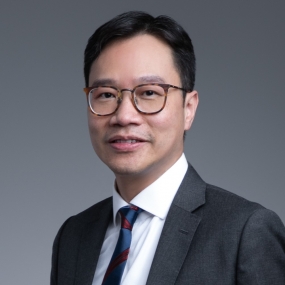
Professor Cheung Chi Wai, MBBS(HK), MD(HKU), FHKCA, FFPMANZCA, FHKCA(Pain Med), FHKAM(Anaesthesiology), Dip Pain Mgt (HKCA) is the Head and Clinical Professor of the Department of Anaesthesiology, The University of Hong Kong (HKU). He is also the Honorary Consultant of the Department of Anaesthesiology, Queen Mary Hospital, Grantham Hospital and Duchess of Kent Children’s Hospital, Hong Kong, as well as the Chief of Service, Department of Anaesthesiology, HKU-Shenzhen Hospital. He has taken up the role as the Division Chief in Pain Medicine of Queen Mary Hospital and led the service there for years. He was granted the Doctor of Medicine degree by HKU with research in pain medicine. Professor Cheung has published extensively in peer reviewed scientific journals in pain medicine and anaesthesiology. He is a regularly invited journal reviewer for many international peer reviewed journals. He is the editorial board member of British Journal of Anaesthesia and the Section Editor of Pain Practice. In 2011, Professor Cheung established the Laboratory and Clinical Research Institute for Pain at HKU that is a pioneering interdisciplinary academic platform to support and nurture both basic science and clinical pain research in Hong Kong. He is currently the President of Hong Kong College of Anaesthesiologists.

Professor of Anaesthesia and Intensive Care Medicine and Foundation Director of the ASSERT Centre at University College Cork, Ireland (https://www.ucc.ie/en/assert/ ). Formerly Dean, School of Medicine University College Cork (2010-13) and Assistant Professor of Anesthesiology at Harvard Medical School, appointed the first Professor of Anaesthesia and Intensive Care Medicine at UCC, Ireland in 1997. Was co-ordinating applicant for the Irish Health Research Board infrastructure grant which established UCC’s Clinical Research Facility (https://www.ucc.ie/en/crfc/ ). Appointed consultant anaesthetist at Cork University Hospital (1997), Honorary Consultant to the South Infirmary and Victoria Hospitals (1998), and Honorary President, Irish Association of Anaesthetic and Recovery Nurses (2002). Has served on many national and international research and education bodies including as chair of the Education Committee of the European Pain Federation, of the Irish Universities and Medical Schools Consortium and of the Council of Deans of Medical Schools in Ireland. Reviewer and consultant for the U.S. Department of Health, Ministerial appointment to the European Medicines Agency (and co-Chair during Ireland’s Presidency 2004). Various awards including eponymous and keynote Lectures, UCC inaugural Lifetime Achievement award for Teaching and Learning (2018). Research interests include human performance in healthcare and innovative training in technical skills. PI or co-investigator for peer review research grants of total value > EU 15M. Author of more than 200 articles for peer review journals. Council Member of the Council of the College of Anaesthesiologists in Ireland and member of the editorial board of four peer review medical journals.
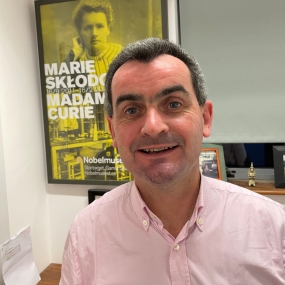
Professor Seamus O'Reilly is a Consultant Medical Oncologist at Cork University Hospital and Associate Professor of Medicine at University College Cork. He graduated from the National University of Ireland (Galway) (BSc 1985, MB BCh BAO 1988, MD 1997) and completed basic specialist training in Trinity College Dublin (MRCPI 1991) and higher specialist training at Johns Hopkins Hospital where he completed a PhD in clinical investigation and was Assistant Professor of Medicine focusing on Phase I Drug Development. He was a Principal Investigator in the Gynaecologic Oncology Group and on return to Ireland established Cancer Clinical Trials units in Waterford and Cork. Professor O'Reilly was Vice Clinical Lead Cancer Trials Ireland and will have been Clinical Lead for 4 years in 2023. His clinical research has focused on cancer therapeutics with over 100 peer reviewed publications, and presentations at meetings such as ASCO and ESMO.
Professor Seamus O'Reilly is co-National Specialty Director in Medical Oncology at the RCPI. With University College Cork, he co-developed an online multidisciplinary course in Cancer Medicine for General Practice. In his community, he is a founding trustee of Cork ARC Cancer Support House, a co-founder of the South Eastern Cancer Foundation, and has developed nurse education and financial hardship patient funds at CUH Charity.
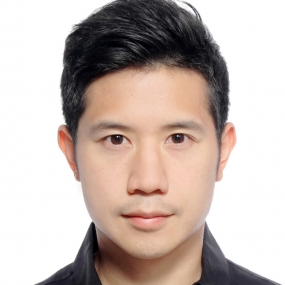
Albert Chan (FHKCA, FANZCA, FHKAM Anaesthesiology) is a cardiac anaesthetist at the Department of Anaesthesia and Intensive Care in Prince of Wales Hospital (PWH) Hong Kong. He has special interests in perioperative medicine and cardiac interventional procedures.
His greatest passion lies in medical education, especially simulation-based medical education. Currently Councillor and Chair of Board of Education of Hong Kong College of Anaesthesiologists, he was instrumental in developing an open access infographic on airway management for COVID-19 patients at the onset of the pandemic, that was translated into 17 languages and shared amongst the global medical community.
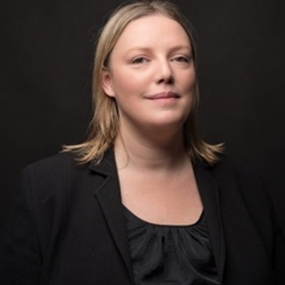
Charlotte Summers graduated in both Biomedical Sciences and Medicine from the University of Southampton, and later undertook a PhD at the University of Cambridge, alongside specialist clinical training in Respiratory (Cambridge) and Intensive Care Medicine (London). She was subsequently appointed as the UK’s first NIHR Clinical Lecturer in Intensive Care Medicine, and awarded a Fulbright All-disciplines Scholar Award and a Wellcome Trust Fellowship for Postdoctoral Clinician Scientists. Charlotte joined the University of Cambridge School of Clinical Medicine in 2015and currently co-leads the Peri-operative, Acute, Critical Care and Emergency (PACE) medicine Section of the Department of Medicine.
Charlotte is a member of the UK-COVID Therapeutic Advisory Panel, advising the Chief Medical Officer about therapies for deployment in the national platform clinical trials, and Chief Investigator of HEAL-COVID, a national Urgent Public Health platform clinical trial for the post-hospital phase of COVID-19.

Dr Dinesh Aggarwal is currently working at COG-UK and Public Health England to characterise SARS-CoV-2 importations. He has a special interest in transmission within care homes and universities as part of the Cambridge University Screening Study. Dinesh completed his medical degree from UCL and the University of Cambridge in 2013. He is an Infectious Diseases and Microbiology Specialist Trainee in the London Deanery and was awarded a Wellcome Clinical PhD Fellowship in 2020 to understand the biological basis of Staphylococcus aureus carriage under the supervision of Professor Peacock, Professor Danesh and Dr Harrison at the University of Cambridge and the Wellcome Sanger Institute.
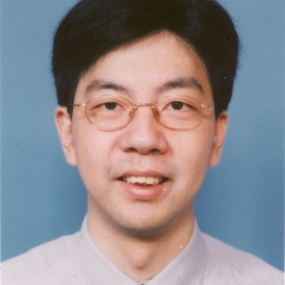
Dr Kenny Chan is the Chief of Service in Intensive Care for Tuen Mun Hospital. His primary interest is the application of advanced technology in improving acute care. He possesses master degrees in Biomedical Engineering, Statistical Science, and professional qualifications in Information Security Management. He is the lead of the territory-wide ICU informatics programme and the immediate past chairman of the Hong Kong Society of Critical Care Medicine. For his experience in epidemics, he was the infection control officer of his ICU during the SARS epidemic in 2003, a forerunner of the ECMO development during the swine flu pandemic in 2009 and the lead of ICU service in the hospital taking the highest number of COVID-19 patients in Hong Kong.
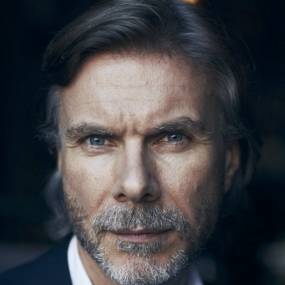
Tony is a practicing frontline NHS surgeon, Associate Medical Director at the Mid and South Essex University Hospitals Group, Director of Medical Innovation at Anglia Ruskin University, and has founded 4 Med-Tech start-ups. He has also co-founded the £500m Anglia Ruskin MedTech Campus.
In 2014 he was appointed as National Clinical Director for Innovation at NHS England and in February 2016 became the first National Clinical Lead for Innovation. In this role he provides clinical leadership and support in delivering improved health outcomes in England and drives the uptake of proven innovations across the NHS, promotes economic growth through innovation and helps make the NHS the go to place on the planet for medical innovation. In 2015 he founded the NHS Clinical Entrepreneur programme. This has become the world’s largest entrepreneurial workforce development programme for clinicians and under the NHS Long Term Plan is set for a major expansion to include intrapreneurs.
In the 2019 New Year's Honours list Tony was awarded the OBE for services to clinical leadership
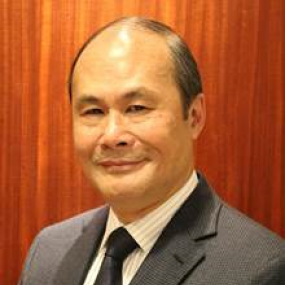
Dr Hing Yu Sois a graduate of the School of Medicine of the University of Hong Kong. He is a Fellow in Anaesthesiology as well as Fellow in Intensive Care of the Hong Kong College of Anaesthesiologists. He is also a Fellow of the Australian and New Zealand College of Anaesthetists and Foundation Fellow of the College of Intensive Care Medicine. Dr. So is currently the First Vice President and Chairman of the Board of Intensive Care Medicine of the Hong Kong College of Anaesthesiologists. Dr. So also has a Master Degree in Quality Management and a Fellow of the Chartered Quality Institute. He worked as Service Director in Quality and Safety before his retirement in 2019 and is now the Advisor in Quality & Safety for the NTE Cluster of the Hospital Authority. Dr. So has undergone training in simulation based education at the Center of Medical Simulation in Boston and has completed his study for the degree of Master in Health Professions Education. He is currently the Honorary Director of the Innovative Learning Centre for Medicine, Hong Kong Academy of Medicine.

A leader of UK engineering who takes a keen interest in engineering innovation at a national level, Dick Elsy was the Chief Executive of the High Value Manufacturing Catapult, the greatest concentration of advanced manufacturing research capability in Europe, until his retirement at the end of May 2021. A career veteran from the automotive industry, with the bulk of his time spent at Land Rover and then Jaguar, where he was engineering director. At Land Rover, where he started his career as one of the key project team members on the original Discovery programme, he became a member of the Board from where he led the creation, development, and manufacture of the Freelander. Prior to joining the HVM Catapult, Dick was the CEO of Torotrak plc the FTSE listed developer of traction drive technology.
Dick is on the council of the UKRI-STFC and is a non-executive director of AB Dynamics, an AIM listed supplier of integrated test systems for the global automotive industry. He is a fellow of the Royal Academy of Engineering and a holder of its Silver Medal. He was recognised for his contribution to manufacturing and technology in the UK with a CBE in 2018.
In 2020 Dick chaired the VentilatorChallengeUK consortium, a collection of significant industrial and engineering partners from across the UK which manufactured and delivered over 13,000 ventilators for the NHS during the COVID-19 pandemic.
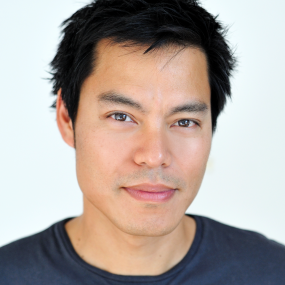
Kevin Fong is consultant anaesthetist at UCLH and professor of public engagement and innovation in the Department of Science, Technology, Education and Public Policy (STEaPP) at University College London. In March 2020, Kevin was seconded to NHS England as National Clinical Advisor in Emergency Preparedness Resilience and Response for the COVID-19 incident. During the past year Kevin has worked with and supported a range of organisations and teams involved in the national pandemic response, including Public Health England’s Joint Modelling Team, Joint Biosecurity Centre, the National Critical Care Transfer Cell and the NHS E Severe Covid Response Group. He has established and led on-site, peer support visits into more than 30 intensive care units across the country, developed a brief online assessment tool for the longitudinal monitoring of NHS staff psychological health and wellbeing and partnered with a particle physics and astrophysics group at Durham University, and the computer science department at UCL, to produce a high-resolution epidemiological model for COVID-19.
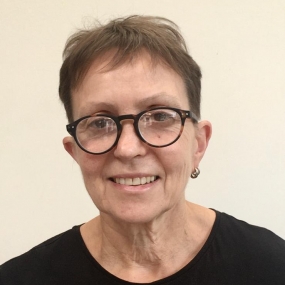
Heather Lambert, a keen cyclist and runner, is consultant paediatric nephrologist at the Great North Children’s Hospital, Newcastle upon Tyne, UK. An NHS clinician, who previously worked in Canada and Uganda, she has research interests in neonatal renal function and urinary tract infection; publications include the renal chapter in the MCAI and UNICEF supported International Handbook for Healthcare Workers in low resource and conflict settings (2021). She has experience developing a novel infant haemodialysis machine (NIDUS), taking a compassionate-use prototype into clinical use, leading the multicentre clinical trial (I-KID), whilst navigating the complex UK regulatory framework. She brings this expertise to the development of Exovent, a negative pressure ventilatory device, which is capable of providing CNEP a continuous negative pressure version of CPAP or full negative pressure ventilation without the need for intubation or sedation. The development group, which initially formed in March 2020 responding to COVID-19, consists of leading academics, scientists, engineers, and clinicians, contributing their time voluntarily and collaborating initially with Marshall ADG and recently Portsmouth Aviation in the UK. Now a charity, of which Heather is a Trustee, Exovent are working with Pioneer groups in low and middle income countries sharing knowledge to aid local development of Exovent devices using local materials and expertise.
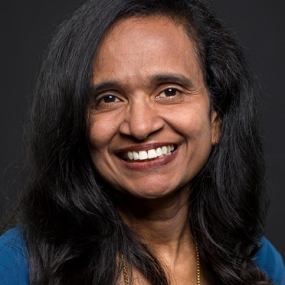
Professor Ellen O'Sullivan trained in anaesthesia in the UK, qualified in 1986 and has since spent 10 years as an NHS Consultant at the University Hospital Aintree, Merseyside. She is now a consultant in a busy Dublin hospital specialising in airway management and a full spectrum of elective and out of hours work. She has been involved with Difficult Airway Society (DAS) since it’s foundation and was elected President of DAS in November 2009. She was then appointed as Difficult Airway Society Professor of Anaesthesia & Airway Management in 2016. She is the immediate Past-President of the College of Anaesthetist of Ireland having held numerous posts including: Chair of Education and Chair of Examinations. Professor O'Sullivan was elected to the Council of the Association of Anaesthetists of Great Britain and Ireland (AAGBI) in 2001 and has held many posts including Vice-President. She was awarded the John Snow Silver Medal in 2013 for contributions to the Association of Anaesthetists.
A particular interest is working in international and third world countries, with early contributions to validating what later became the Life Box Pulse-Oximetry project, where she has made many trips to Africa.
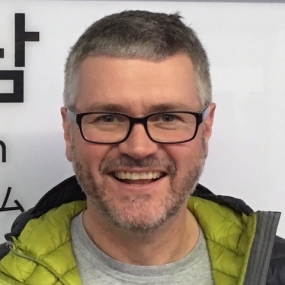
Tony is an expat Geordie, married with two fledgling kids and a spaniel. He is also Professor of Neuroscience and Anaesthesia at the University of Bristol. He is occasionally found in theatres and slightly more regularly in pain clinic. He spent an uncommonly long time as an undergraduate Medic in Birmingham before finally graduating in 1994. This was largely because of intercalating BSc followed by a PhD in cellular neurophysiology. Here he developed his longstanding interest in autonomic neuroscience and spinal cord function. He has pursued an academic path, initially as a clinical lecturer in Bristol and subsequently as a senior research fellow and consultant. His research group undertakes integrative systems neuroscience research into pain and autonomic control with parallel proof of concept studies in man. He has supervised 14 PhD students to completion, obtained research grant funding >£10.4m (from Wellcome Trust, BHF, MRC, NIHR, NIH and industry). His main focus (pre-COVID...) was on developing novel translational assays and new approaches to target and harness endogenous analgesic circuits. Having early in his career determined that airway research was an academic dead end - he is as surprised as anyone to have enthusiastically developed a research interest in AGPs and is a member of the NIHR funded AERATOR study team in Bristol.
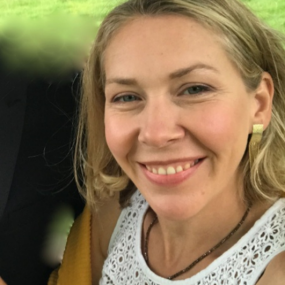
Dr Heightman specialises in interstitial lung disease and integrated respiratory medicine. She is a member of the clinical leadership group of the London Respiratory Clinical Network which develops guidance for London in meeting respiratory priorities in the NHS long term plan and relating to the COVID19 pandemic.
Dr Heightman has been clinical lead for the COVID follow up service at UCLH which is a multiprofessional and multispecialty service which integrates with community assessment and community rehabilitation services. She is a member of the NHSE task force considering COVID follow up service development and the NICE guideline group looking at management of the long-term effects of COVID19. She has a broad interest in transformation of outpatient services and in developing new models of care for long term conditions across the integrated care system.
Dr Heightman specialises in interstitial lung disease and integrated respiratory medicine. She is a member of the clinical leadership group of the London Respiratory Clinical Network which develops guidance for London in meeting respiratory priorities in the NHS long term plan and relating to the COVID19 pandemic.
Dr Heightman has been clinical lead for the COVID follow up service at UCLH which is a multiprofessional and multispecialty service which integrates with community assessment and community rehabilitation services. She is a member of the NHSE task force considering COVID follow up service development and the NICE guideline group looking at management of the long-term effects of COVID19. She has a broad interest in transformation of outpatient services and in developing new models of care for long term conditions across the integrated care system.
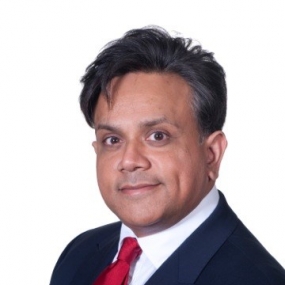
Professor Anil Patel was appointed consultant anaesthetist in 1999 at The Royal National Throat Nose and Ear Hospital, University College London Hospitals, and honorary senior lecturer at University College London. He is Difficult Airway Society professor of anaesthesia and airway management.
Anil has anaesthetised over 6,000 patients for laryngeal and tracheal procedures. His interests include jet ventilation, emergency airway management, airway stenosis, phonosurgery, videolaryngoscopy, flexible laryngeal mask airways in ENT procedures, difficult airway management for head and neck cancer patients, and THRIVE.
Anil was president of the Difficult Airway Society from 2015–2018. He is the author of over 130 publications, 3,000 citations and 25 book chapters. He has been an invited speaker to over 100 national meetings in 38 countries.
